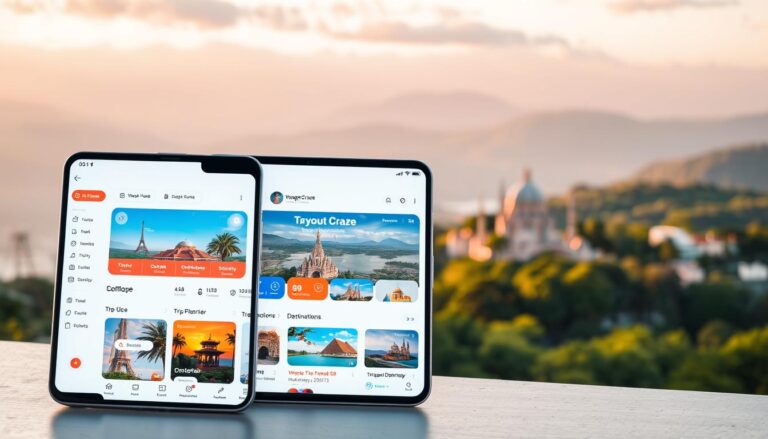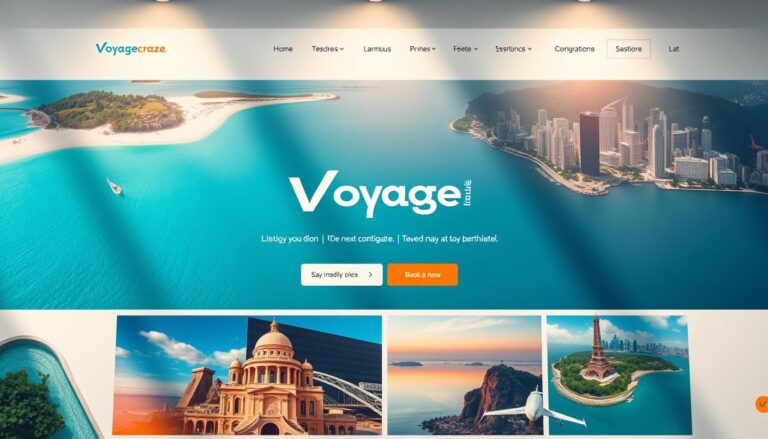Traveling can be expensive, but finding ways to save on accommodation can make a big difference in your budget. Whether you’re backpacking through Europe or planning a family vacation, there are plenty of strategies to cut costs without sacrificing comfort. From choosing the right time to travel to exploring unique lodging options, these tips will help you keep more money in your pocket. Let’s dive into some practical hacks to save money on accommodation.
Key Takeaways
- Consider self-catering accommodations to save on dining out costs.
- Opt for minimalist and budget-friendly lodging options to cut expenses.
- Travel during off-peak seasons to secure lower rates.
- Explore alternative lodging options like hostels or guesthouses.
- Negotiate directly with hosts for potential discounts.
Utilize Self-Catering Facilities
Benefits of Cooking Your Own Meals
Cooking your own meals while traveling can be a game-changer for your budget. Preparing your own food not only saves money but also gives you control over what you eat. You can enjoy fresh, healthy meals without the hefty price tag of dining out. Plus, it’s a great way to experience local ingredients and flavors. Imagine picking up fresh produce from a local market and whipping up a delicious meal in your own space.
Finding Accommodations with Kitchens
When searching for a place to stay, look for accommodations that offer kitchen facilities. Hostels, vacation rentals, and some budget hotels often provide access to a kitchen. This amenity can significantly cut down on food expenses. Keep an eye out for listings that mention a self-catering kitchen or communal cooking areas. Even a small kitchenette with basic appliances can make a big difference in your daily budget.
Saving on Food Costs with Refrigerators
Having a refrigerator at your disposal is another fantastic way to save money. It allows you to store perishable items, meaning you can buy in bulk and take advantage of sales. Stock up on essentials like milk, cheese, and vegetables without worrying about them spoiling. A fridge also means you can prepare meals in advance, saving both time and money. It’s a simple yet effective way to stretch your travel budget further.
Embracing self-catering options not only keeps your wallet happy but also lets you enjoy the comfort of home-cooked meals, no matter where you are.
Choose Simpler Accommodation Options
Benefits of Minimalist Lodging
Choosing simpler accommodations can be a game-changer for your travel budget. Why spend a fortune on luxury when basic comforts suffice? Minimalist lodging options, like hostels or guesthouses, provide a safe place to sleep and store your belongings without the hefty price tag. Plus, they often offer a more authentic experience by immersing you in the local culture and environment.
- Cost-Effective: Often, these options are significantly cheaper than hotels, freeing up funds for other adventures.
- Community Vibe: Hostels and guesthouses offer a social atmosphere, perfect for meeting fellow travelers.
- Location: These accommodations are often centrally located, making it easy to explore without spending much on transportation.
Types of Budget-Friendly Accommodations
When it comes to saving money, the type of accommodation you choose matters. Here are some options to consider:
- Hostels: Ideal for solo travelers or groups, offering dormitory-style rooms and shared facilities.
- Guesthouses: Often family-run, providing a cozy, home-like atmosphere.
- Homestays: Stay with locals and get a firsthand experience of the local lifestyle.
- Motels and Inns: Basic amenities at a fraction of the cost of hotels.
Sacrifices Worth Making for Savings
Opting for simpler accommodation might mean giving up some luxuries, but the savings are often worth it.
- Skip the Extras: Forgo amenities like room service or a minibar, which can add unnecessary costs.
- Shared Spaces: Embrace shared bathrooms or kitchens to cut costs.
- Basic Comforts: A fan instead of air conditioning can be a small sacrifice in exchange for lower rates.
Sometimes, less is more. Embracing simplicity in lodging can lead to richer travel experiences and deeper connections with the places you visit. Why not save a little and see a lot more?
For a wide selection of cheap hotels globally, offering thousands of discounts and deals, consider exploring your options thoroughly. You might find the ideal room that fits your budget perfectly!
Travel During Off-Peak Seasons
Advantages of Off-Season Travel
Traveling during the off-season can be a game-changer for your budget. Room rates and travel costs plummet due to reduced demand, making it an ideal time for budget-conscious travelers. Not only do you save money, but you also enjoy a more relaxed experience with fewer tourists around. Imagine having a beach almost to yourself or exploring popular attractions without the usual crowds. Additionally, the locals often have more time to engage with you, offering a more authentic experience.
Identifying Off-Peak Times
Knowing when the off-peak season occurs is key to maximizing savings. Typically, these times coincide with less favorable weather conditions, like the monsoon season in Southeast Asia. However, this might not be a deal-breaker; the cooling rains can be refreshing. To pinpoint these periods, check travel guides, weather patterns, and even ask locals or fellow travelers. The shoulder season, which is just before or after peak season, can also offer good deals with better weather.
Booking in Advance for Better Rates
While off-peak travel already offers lower prices, booking in advance can further increase your savings. Airlines and hotels often provide early bird discounts, so securing your spot months ahead can lead to significant cost reductions. Be on the lookout for flash sales or special promotions, which can pop up unexpectedly. Planning ahead not only helps your wallet but also ensures you get your preferred choice of accommodation and flights.
Traveling off-peak means fewer crowds, more savings, and a chance to see the world differently. It’s not just about the money; it’s about the experience.
For those seeking substantial savings, consider traveling during the off-season to enjoy up to 50% discounts on accommodations and reduced fares on transportation options.
Explore Alternative Lodging Options
Unique Accommodation Experiences
Why stick to the usual hotels when there are so many unique places to stay? Imagine waking up in a treehouse, or spending a night in a yurt. These spots offer more than just a bed—they turn your trip into an adventure. Staying in a traditional tribal house or a converted tour bus can make your trip unforgettable. If you want something different, try Hipcamp for camping and glamping options, from basic sites to cool setups like yurts and Airstream trailers.
Cost-Effective Alternatives to Hotels
Hotels can be pricey, but there are cheaper options that still provide a comfy stay. Think about hostels, guesthouses, or even homestays. These places often have shared facilities, which can help cut costs. Plus, they give you the chance to meet other travelers. If you’re open to it, sleeping in a dorm or sharing a bathroom can save you a lot. The savings can really add up!
Pros and Cons of Unconventional Stays
Trying out alternative lodging can be a fun experience, but it’s not for everyone. Here’s a quick rundown:
- Pros:
- Unique experiences
- Often cheaper than hotels
- Opportunity to meet locals and other travelers
- Cons:
- Less privacy
- Fewer amenities
- Might be less comfortable than a hotel
Staying in unconventional places might not always be cheaper than budget hotels, but the experience is often worth it. It’s about finding a balance between cost and the adventure you’re seeking.
Tips for Bargaining with Hosts
Negotiating a better rate for your accommodation can feel daunting, but it’s a skill worth mastering. Start by being friendly and polite—a little charm can go a long way. When you arrive at your accommodation, allow them to show you the room first. This builds rapport and makes it harder for them to let you walk away without a deal. Mention if you’ve found a similar room at a lower price nearby. Sometimes, just knowing there’s competition can encourage them to offer a better rate. If they can’t lower the price, ask if they can include extras like breakfast or a room upgrade.
Understanding Local Pricing
Knowing the local pricing landscape can give you an edge. Check out the going rates for accommodations in the area before you arrive. This knowledge helps you gauge whether the rate you’re offered is reasonable or if there’s room for negotiation. Local residents can be a goldmine of information—ask them about typical prices and any hidden gems they might know.
When and How to Ask for Discounts
Timing is key when asking for discounts. Try negotiating during low occupancy periods, like weekdays or off-peak seasons. If you’re planning a longer stay, mention it upfront; many places offer discounts for extended stays. Be upfront about your budget constraints and express willingness to forgo certain amenities for a lower rate. Remember, the worst they can say is no, so it doesn’t hurt to ask.
Negotiating isn’t just about getting a lower price; it’s about finding a deal that works for both parties. Be respectful, and you’ll often find that hosts are willing to meet you halfway.
Leverage Long-Term Stays for Discounts
Staying in one place for a while can be a real money-saver. When you book a room for a longer period, many places offer discounts. It’s like buying in bulk at the grocery store. You pay less per night because you’re committing to more nights. Plus, when you settle into a spot, it starts to feel like home, which is a nice bonus.
Finding Long-Term Rental Deals
Looking for long-term deals? Start by checking out extended stay hotels, vacation rentals, or even local apartment listings. Websites like Airbnb or Booking.com often have options for longer stays. Some places might not advertise discounts, so don’t be shy—ask if they offer a better rate for staying longer. And remember, loyalty programs from sites like Hotels.com and Booking.com can also help you save.
Sharing Spaces to Cut Costs
Traveling with friends or family? Sharing a space can cut down costs significantly. Renting a house or an apartment with multiple bedrooms can be cheaper per person than booking individual hotel rooms. Plus, you get the added benefit of shared amenities like kitchens or living rooms. It’s a win-win for your wallet and your social life.
Committing to a longer stay isn’t just about saving money—it’s a chance to really soak in the local culture and make some new friends along the way.
Utilize Online Booking Tools Wisely
Comparing Prices Across Platforms
When you’re hunting for the best deal, comparing prices across different booking platforms is a smart move. Not all booking sites are created equal. Some sites might show a higher rate initially, but they include taxes and fees upfront, like Booking.com. Others might seem cheaper until you hit the final booking page. For budget-friendly options, focus on platforms like Booking.com, Agoda, and Airbnb. If you’re looking for a wider range of options, check out top websites for booking cheap hotels like Kayak, Expedia, and Priceline.
Using Filters to Find Deals
Filters are your best friend when it comes to narrowing down your search. Want a place with free cancellation? Need a pet-friendly spot? Filters can help you find exactly what you’re looking for without sifting through endless listings. Many sites, like Booking.com, offer filters that let you view only listings with free cancellation or no upfront payment.
Reading Reviews for Best Value
Reviews can be a mixed bag. While they provide insight, remember that some might be fake—either overly positive or negative. Look for patterns in reviews rather than focusing on outliers. A place with hundreds of positive reviews is probably a safer bet than one with just a handful. And always read the most recent reviews to get an idea of the current state of the place. Blockquote: “Don’t just rely on star ratings; dig a little deeper into what people are actually saying about their stay.”
In the end, utilizing online booking tools effectively can save you a lot of money and hassle. It’s all about knowing where to look and what to look for.
Travel in Groups to Share Costs
Advantages of Group Travel
Traveling with a group can be a game-changer for your wallet. Splitting costs among several people means that everything from accommodation to transportation becomes more affordable. When you’re part of a group, you can often negotiate better rates for accommodations or even snag discounts on tours and activities. Plus, sharing experiences with others can make the journey more memorable.
Splitting Accommodation Expenses
One of the easiest ways to cut down on costs is by sharing lodging expenses. Whether it’s a cozy Airbnb or a spacious hotel suite, dividing the nightly rate among a group can significantly reduce the price per person. For instance, renting an entire apartment or house can be cheaper per head than booking multiple hotel rooms. It’s not just about saving money; it’s also about enjoying more space and amenities together.
Finding Group-Friendly Lodging
When searching for places to stay, look for accommodations that cater to groups. Many hotels and hostels offer family or group rooms, which are designed to accommodate more people at a lower cost per person. Vacation rentals are another excellent option, providing the comfort of home with the added benefit of communal spaces where everyone can gather. Always check the maximum occupancy rules to ensure you’re not exceeding the limit, which could result in additional charges.
Conclusion
So, there you have it, folks! Saving money on accommodation doesn’t have to be rocket science. With a bit of creativity and flexibility, you can find a comfy place to crash without emptying your wallet. Whether it’s cooking your own meals in a hostel kitchen, sharing a room with a buddy, or opting for a fan instead of AC, these small changes can add up to big savings. Remember, the goal is to have a roof over your head and a safe place to rest, not to splurge on unnecessary luxuries. So next time you’re planning a trip, keep these hacks in mind and watch your travel budget stretch further than you ever thought possible. Happy travels!
Frequently Asked Questions
How can cooking my own meals help save money?
Cooking your own meals lets you avoid eating out, which can be expensive. By using a kitchen in your accommodation, you can prepare meals with local ingredients, saving a lot on food costs.
What are some budget-friendly places to stay?
Consider staying in hostels, guesthouses, or homestays. These places often offer the basics you need at a lower price compared to hotels.
Why is traveling during off-peak seasons cheaper?
Traveling during off-peak times means fewer tourists and lower prices on flights and accommodations. You can enjoy attractions without the crowds and save money.
How can I find the best deals online?
Use comparison websites to check prices across different platforms. Look for filters to find the best deals and read reviews to ensure good value.
What are some ways to cut costs when traveling in a group?
Traveling with others allows you to split costs for accommodations and transport, making it cheaper per person. Look for group-friendly lodging options.
How can I negotiate better rates for my stay?
Don’t hesitate to ask for discounts, especially for longer stays. Understand local pricing and be polite when negotiating to get the best deals.







